Five Siblings Run the U.S.’s Only Baijiu Distillery in Their Mom’s Backyard
Only in Portland.
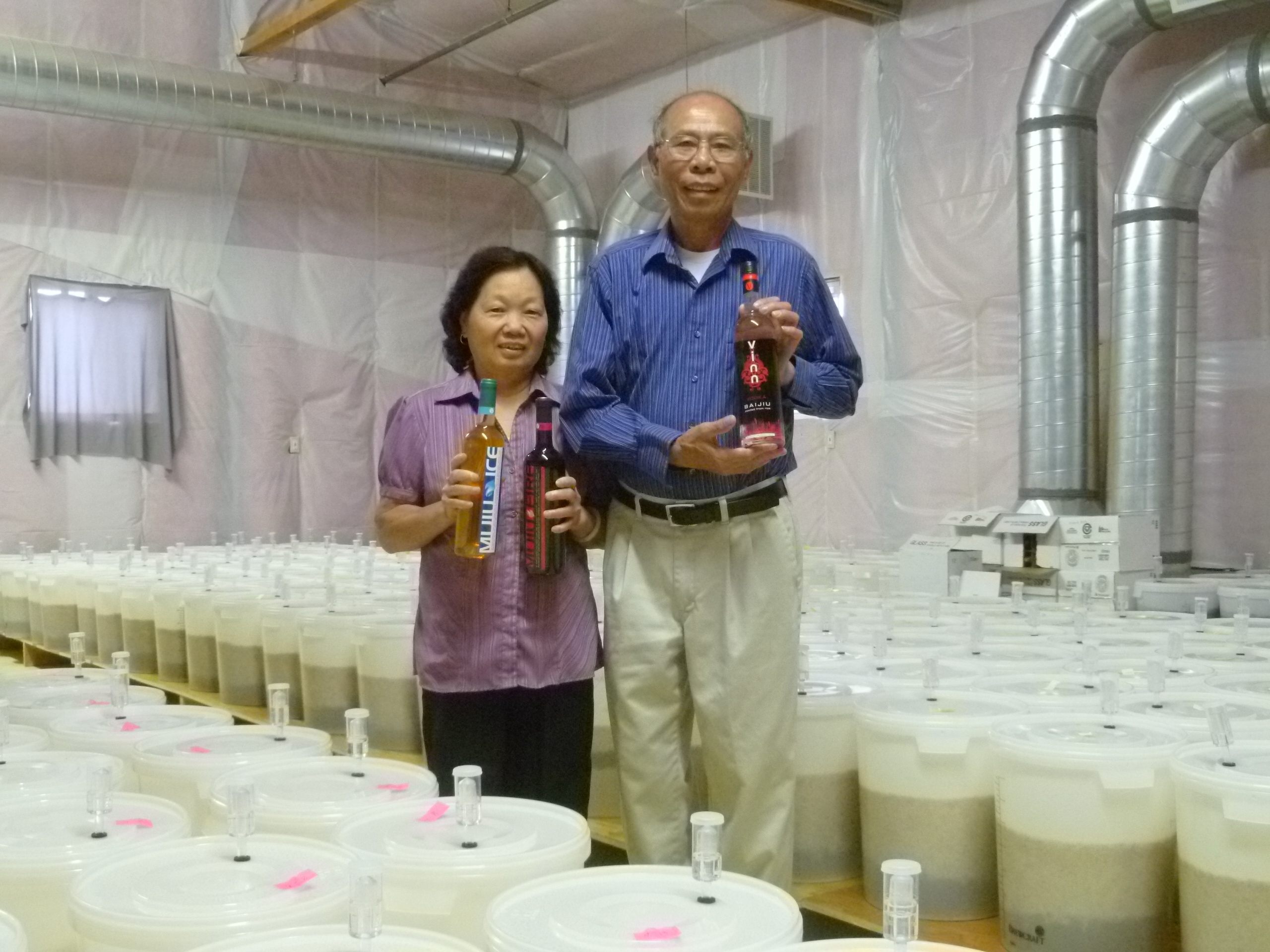
Michelle Ly has coached countless Americans through their first sips of baijiu. Even though it’s the world’s most popular spirit, few of her non-Chinese customers have tried it, and even in Portland, Oregon, where having adventurous tastebuds is a lifestyle, its funkiness and potency can provoke puzzlement and polarized reactions.
The spirit can be equally baffling to Americans in the industry. One time when Ly explained the production process to another distiller, he stopped her in confusion, thinking she had left out a step. Most alcohols start with malting: grains left in water until their starches convert into sugars, with fermentation as step two. But as baijiu makers know, making this over-100 proof liquor means combining the two steps: a process called parallel fermentation, for, some would say, a liquor without parallel.
Distillers make more than 10 billion liters per year of baijiu, which translates to “white alcohol.” But most of it is consumed in its home country of China. Often fiercely strong and flavorful, famed baijiu include Kinmen Kaoliang and the tremendously popular Moutai. The latter is powerful enough that on President Richard Nixon’s visit to China in 1972, future secretary of state* Alexander Haig scrambled to warn him against drinking too much. (Nixon disregarded this advice.)
Despite the ancient tipple’s popularity and the size of the Chinese diaspora, baijiu makers outside China are relatively rare. In the United States, there is only one. At Vinn Distillery, in Wilsonville, Oregon, five siblings make the only U.S. baijiu in an unexpected place: a pole barn behind the family home. Ly is one of the five siblings who own Vinn Distillery. Originally set up by her retired father in their backyard, the distillery makes whiskey, vodka, fruit liquors, and America’s first and only baijiu. While companies often import baijiu into the United States, she says, none make it from scratch.
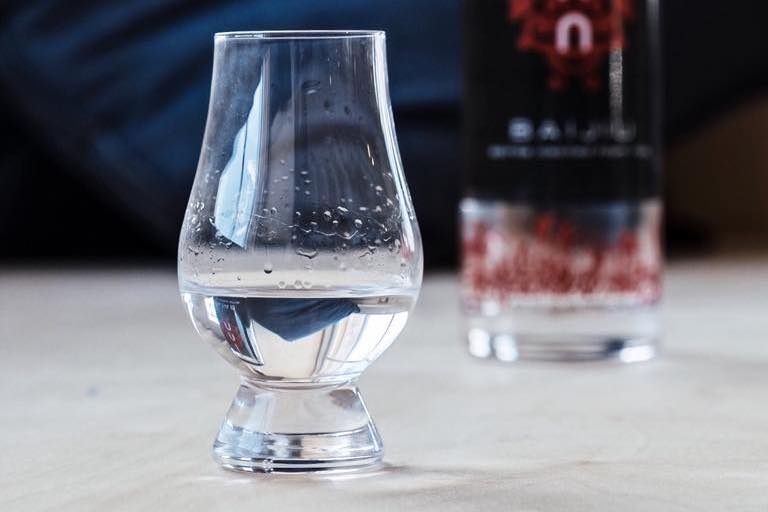
Unlike many home brewers, Ly’s father, Phan Ly, didn’t have to trawl Google for information—his family had been brewing baijiu for centuries. He grew up in Vietnam, part of an ethnically Chinese community where many people made their own liquor (after all, says Ly, there were no liquor stores). But in 1978, when the five siblings were still young, the entire family was deported for being Chinese, the result of tensions leading up to the Sino-Vietnamese War, which broke out the next year.
Their uprooting sent them on a long road to Oregon. They first settled in a small farming village in China. After the local villagers plied Phan with baijiu, though, he revealed he had sailing skills from working aboard ships in Vietnam’s Ha Long Bay. Wanting to escape Communist China, villagers pooled their money to purchase a fishing boat. The destination was Hong Kong and a new life. The arduous journey took a month and a half. “Our family’s ticket onto that ship,” Ly says, was Phan’s sailing ability. From there, a church in Oregon sponsored the Ly family, and they settled in the United States.
But when they arrived, there was no baijiu. “We couldn’t get our hands on it,” says Ly. Phan wanted to sell drinks of baijiu at the family restaurant, but the entire family missed it. “[It’s essential for] honoring our ancestors, welcoming the new year,” says Ly. “Any kind of holiday celebration, baijiu is toasted.”
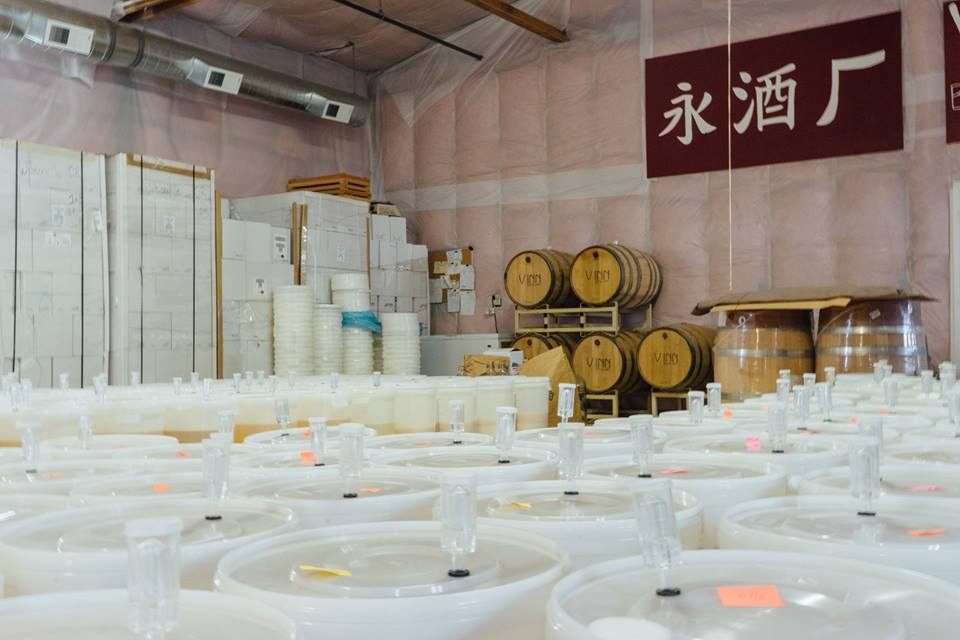
After Phan retired from the family restaurant business, he told his children he planned to start a distillery in the pole barn. “We thought it was just going to be his retirement project,” says Ly. “We thought there was no way he could actually get this going.” Two years later, he surprised his children by telling them he had completed the paperwork to become a licensed distillery. “Let’s sell the restaurant and start selling baijiu,” Ly remembers her father saying. Originally, Phan wanted to name the distillery “Five Siblings,” for his children, but they convinced him to go for the “Vinn” moniker instead: the shared middle name of the siblings, all of whom work for the distillery in some way.
The family patriarch passed away in 2012, but every summer, the siblings and their mother still make qu, the key substance for making baijiu, from rice flour, herbs, and spices. Like a sourdough starter, the qu is filled with yeast and enzymes. Baijiu makers form qu bricks or balls, and add it to cooked grains, such as sorghum or rice, to kickstart fermentation. Vinn’s “little qu,” Ly says, is more common in southern China, where more rice is grown, than in the north, where wheat-based, brick-like “big qu” is dominant. After powdering the qu, the Lys add it to cooked, cool brown rice, which they then ferment in vats for six months. After distilling it in pot stills, they age it for a year or more, resulting in Vinn Distillery’s unfiltered, rice-scented liquor. According to Ly, the rice fragrance is a feature of southern Chinese baijiu: other categories include honey fragrance, light fragrance, and sauce (that is, soy sauce) fragrance.
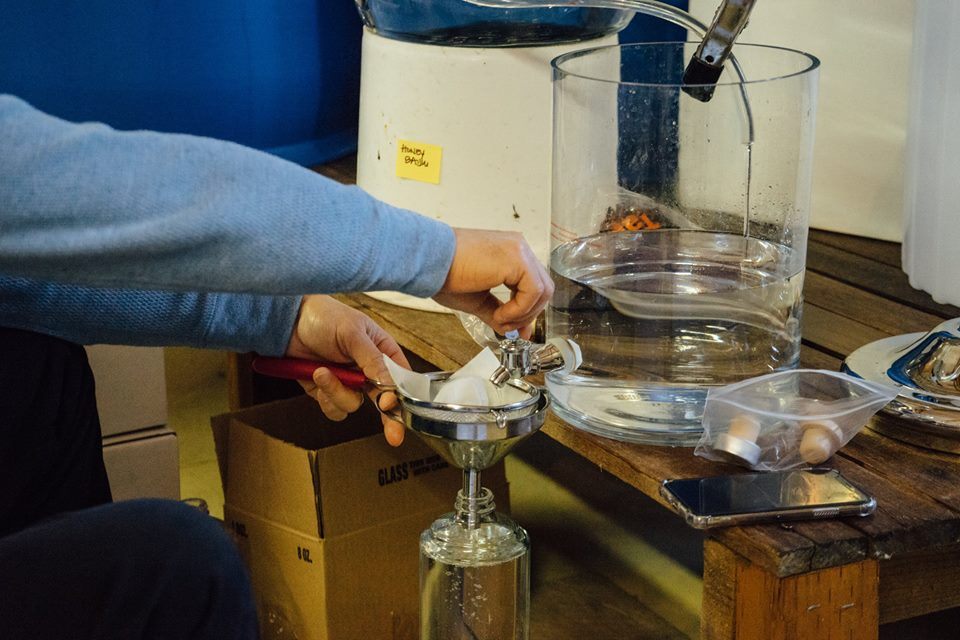
According to baijiu researchers, some of the best Chinese baijiu is made in temperate zones. Ly is unsure how much the cool Pacific Northwest climate influences their baijiu. But much of the taste, she says, comes from the microbial makeup of the qu, which develops from the local air, water, and ingredients. The result? One-of-a-kind Oregon baijiu.
While the Ly family’s liquors began with baijiu, they’ve branched out with rice-derived vodkas, fruit liquors, and even an accidental whiskey. One of Ly’s sisters put some baijiu in barrels and left it there for a year. “Does it qualify as a whiskey?” she and her siblings wondered. After doing some research, they decided it did. (It’s made with a grain and fermented in barrels.) Now, they sell it as “America’s first rice whiskey.”
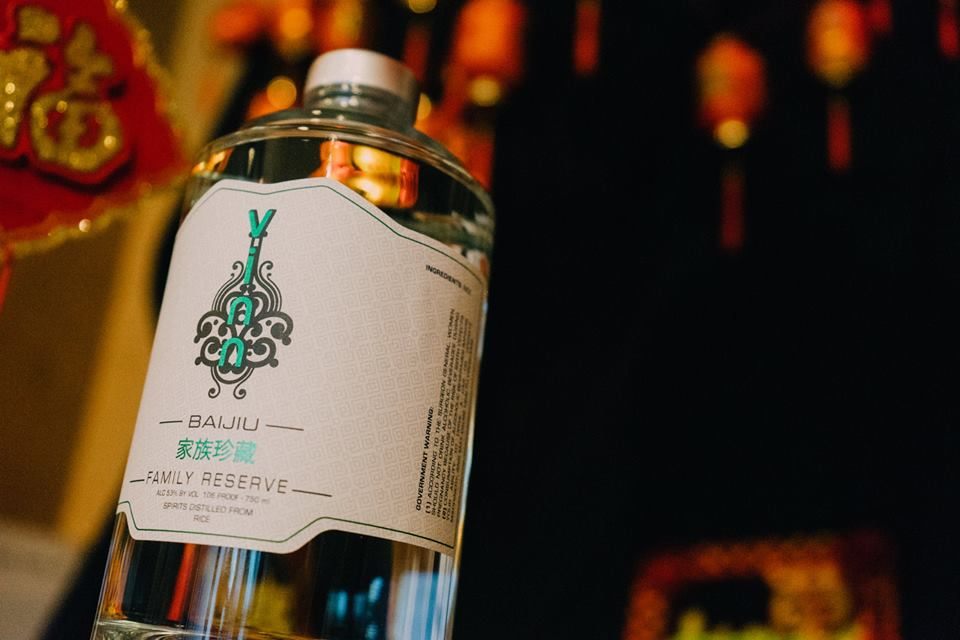
While baijiu is increasingly available worldwide, its potency and funky, fiery flavor can shock the uninitiated. Their standard baijiu, Ly notes, is 40% abv: intentionally low for a baijiu, so as to meet the expectations of Americans used to relatively weaker whiskeys, vodkas, and rums. But as a posthumous tribute to their father, the Lys also sell his “go-to” baijiu, a proudly potent 106-proof spirit.
At the Vinn Distillery tasting room in Portland, the company educates newcomers about baijiu. Some sippers have experienced cut-rate baijiu on trips to China, while others simply have no basis for comparison. Baijiu expert Derek Sandhaus lovingly describes Vinn’s flagship baijiu’s taste as nutty and delicate, even lemony. Some of Ly’s first-time customers, in contrast, are taken aback or have “negative” reactions on the first sip, says Ly. But she adds that one of the joys of baijiu is that the flavor profile changes as you savor it, intriguing people into going back for more.
*Correction: This story previously stated that Alexander Haig was secretary of state in 1972. Haig became secretary of state in 1981.
Gastro Obscura covers the world’s most wondrous food and drink.
Sign up for our regular newsletter.





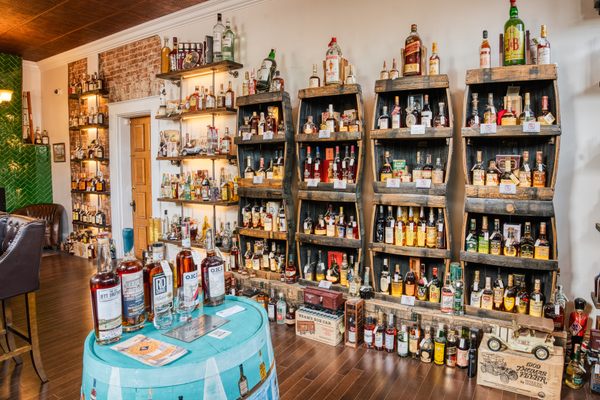





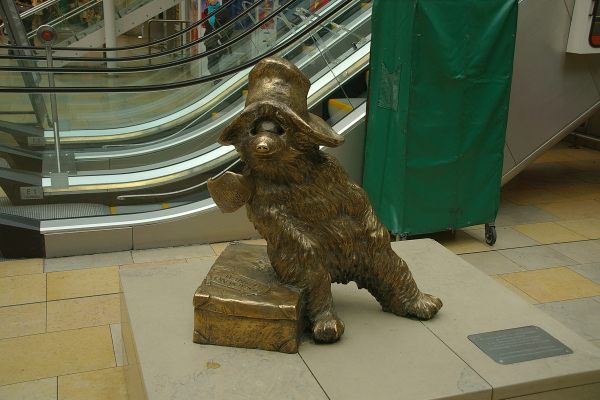
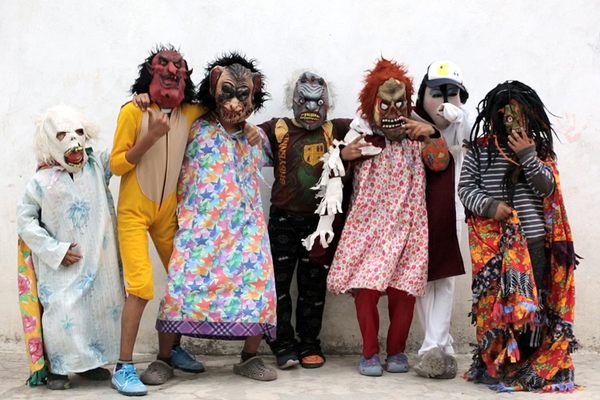










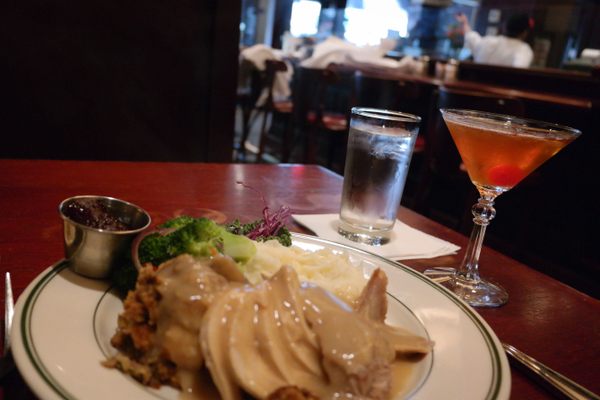

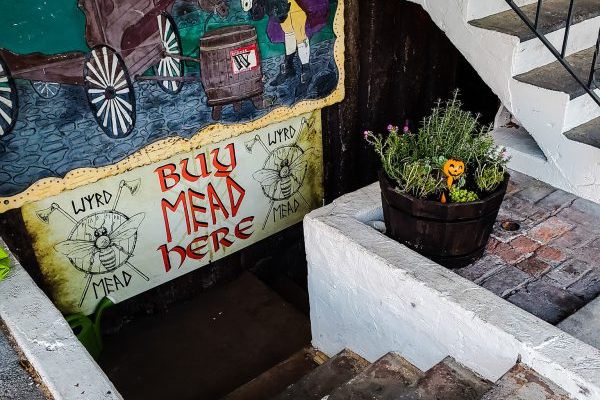
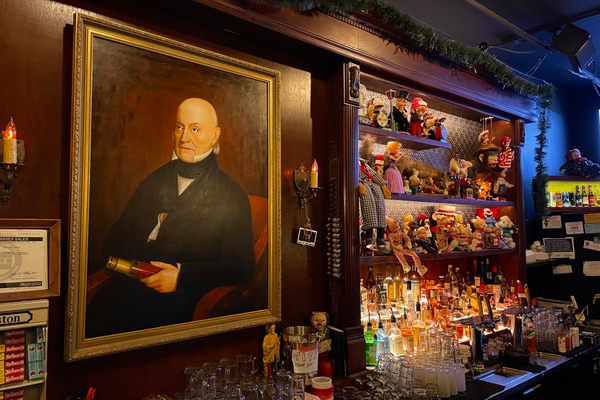



Follow us on Twitter to get the latest on the world's hidden wonders.
Like us on Facebook to get the latest on the world's hidden wonders.
Follow us on Twitter Like us on Facebook